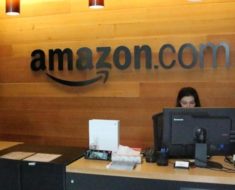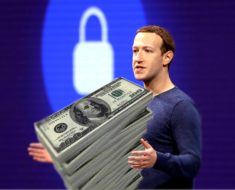The trade deficit fell 1.7% in 2019. The U.S. imported $616.8 billion more than it exported last year, according to the Commerce Department. That’s the lowest deficit in six years. The decline is the result of a 17.6% drop in the deficit between China and the U.S. as well as a 19.3% drop in the amount of oil the United States imports.
But the trade gap with Mexico jumped 26.2% last year, and the deficit with the EU rose 5.5% to $177.9 billion. The United States posted an $866 billion deficit in the auto and appliance sectors. That’s down from the $887.3 billion deficit in 2018. In the U.S., the tourism and banking sectors’ deficit dropped to $249.2 billion. That’s a $10 billion drop from the 2018 total in those sectors.
The president promised he would cut the deficit to zero. But the U.S. continues to spend more than it produces, so there will always be a substantial gap in what the U.S. buys and sells, according to economists. In December, the deficit increased by 11.9% due to the tariff war with China.
The president talked about America’s great economy during his State of the Union address. He likes to use the stock market as a measuring stick for economic success as well as low inflation and unemployment numbers. Mr. Trump promised his economic policies would produce 3.0 to 4.0% Gross Domestic Product growth during his campaign. But GDP growth was only 2.1% in 2019. GDP growth was more than 3.0% in January 2019.
Job growth slowed down in 2019. The economy added an average of 176,000 jobs a month in 2019. That’s a more than 13% percent decline in the number of jobs Obama added during his time in office. Wages increased in 2019, but the increase came from the increase in the minimum wage.
Huawei plays a starring role in the tech war with China. But Huawei continues to thrive in the smartphone industry as well as in building a global 5G network. Mr. Trump tried to stop the U.K from using Huawei’s 5G services, but Boris Johnson decided to use Huawei’s services despite threats from the U.S.
But Huawei won’t participate in developing the sensitive aspects of the U.K.’s 5G network. And Vodafone plans to stripe Huawei out of its core services across Europe because of that decision. That will cost the company €200m, and it will take five years to complete that update.
Dil Bole Oberoi





